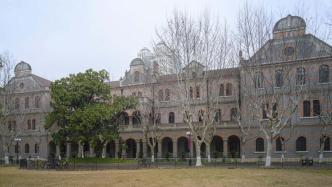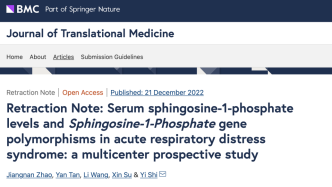
On December 21, 2022, the international academic journal "Journal of Translational Medicine" (Journal of Translational Medicine) published a retraction statement online stating that a paper was withdrawn because the gene studied in the paper involved did not exist.
The corresponding author of the paper involved is Yi Shi from the Department of Respiratory and Critical Care Medicine, Jinling Hospital Affiliated to Nanjing University School of Medicine.
A non-existing gene, there are gene polymorphisms in the population?
But it's not clear whether the researchers misunderstood the gene's naming and led to the retraction.
The paper involved stated that the research in the paper was supported by the National Natural Science Foundation of China with the number 81470206 and the National Natural Science Foundation of China with the number 81670073.
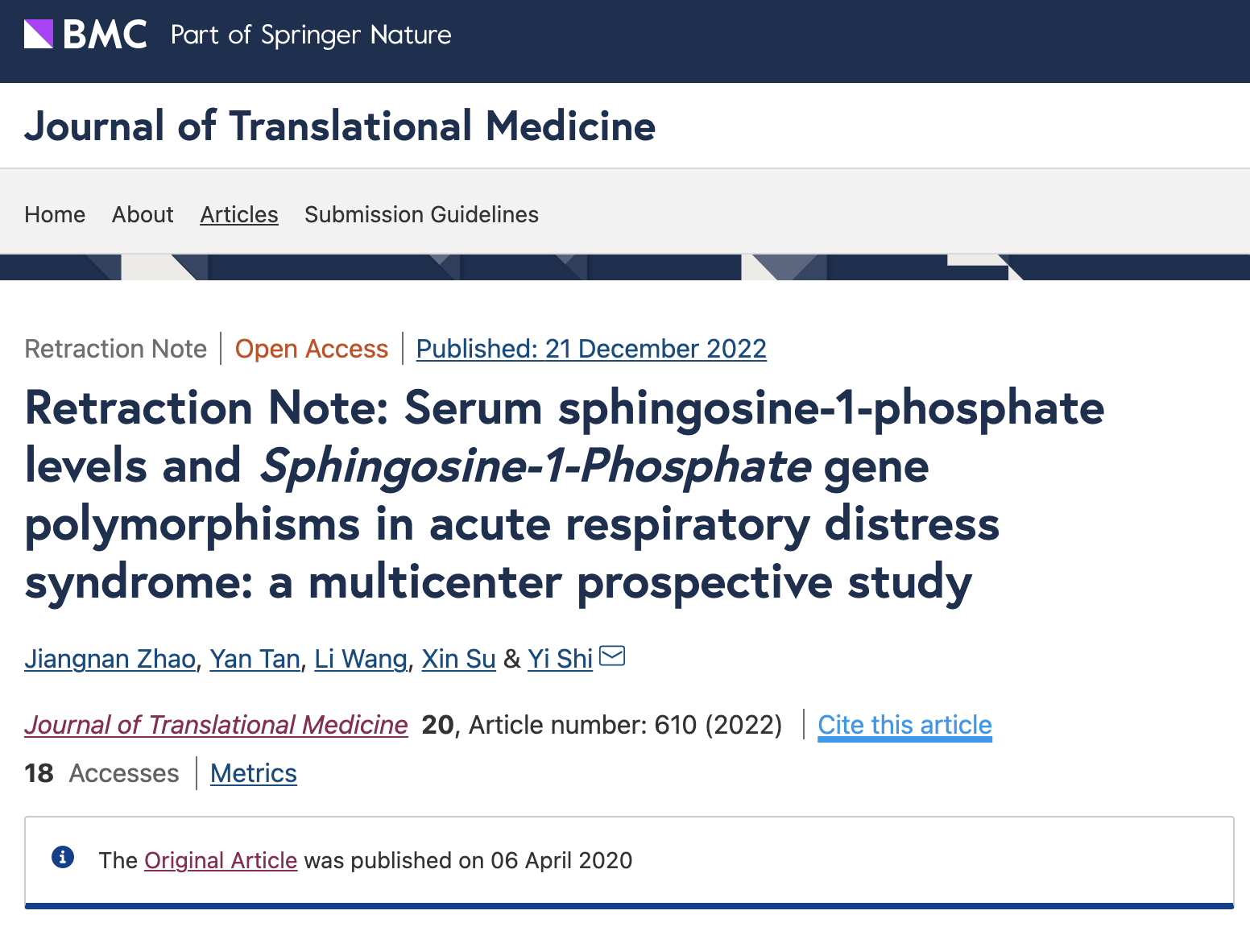
Instructions for retraction published online December 21, 2022 in the Journal of Translational Medicine.
The paper is signed by Jiangnan Zhao, Yan Tan, Li Wang, Xin Su and Yi Shi. Among them, Yan Tan and Li Wang are signed by Department of Respiratory Medicine of Nanjing First Hospital (Nanjing Hospital Affiliated to Nanjing Medical University), Jiangnan Zhao, Xin Su and Yi Shi are signed by Nanjing University School of Medicine Department of Respiratory and Critical Care Medicine, Jinling Hospital.
The title of the paper involved is "Serum sphingosine-1-phosphate levels and gene polymorphisms of sphingosine-1-phosphate in patients with acute respiratory distress syndrome: a multicenter prospective study" (Serum sphingosine-1-phosphate levels and Sphingosine-1-Phosphate gene polymorphisms in acute respiratory distress syndrome: a multicenter prospective study), published online April 6, 2020.
According to the paper involved, it is hypothesized that a decrease in serum S1P (sphingosine-1-phosphate, or sphingosine-1-phosphate, Sphingosine-1-phosphate) level is associated with the clinical outcome of ARDS (acute respiratory distress syndrome), and that the S1P gene The polymorphisms were associated with serum S1P levels. A total of 121 ARDS patients and 100 healthy individuals were recruited for the study. CONCLUSIONS: Patients with ARDS had significantly lower serum S1P levels. Reduced S1P levels are associated with poorer clinical outcomes. There was a significant association between S1P rs3743631, rs907045 gene polymorphisms and ARDS susceptibility.
"The sphingosine-1-phosphate (S1P) gene does not exist," said the retraction statement in the Journal of Translational Medicine.
In fact, S1P is a metabolite of the cell.
Zhang Zhiyi and others from the Department of Rheumatology and Immunology of the First Affiliated Hospital of Harbin Medical University published a paper in "Chinese Internal Medicine" in 2018, stating that S1P is a biologically active metabolite of sphingomyelin. Sphingomyelin is the main sphingolipid on the cell membrane, which can be catalyzed by neurophospholipase to generate ceramide, which is quickly catalyzed and hydrolyzed to generate sphingosine, which is then phosphorylated under the action of sphingosine kinase to produce 1 - Sphingosine Phosphate (S1P). As a metabolite, S1P can act as a second messenger in the cell to activate downstream signaling pathways, affecting cell metabolism and function, and can also be transported outside the cell to bind to its receptor through the adenosine triphosphate-binding cassette transporter superfamily and the Spns2 transporter.
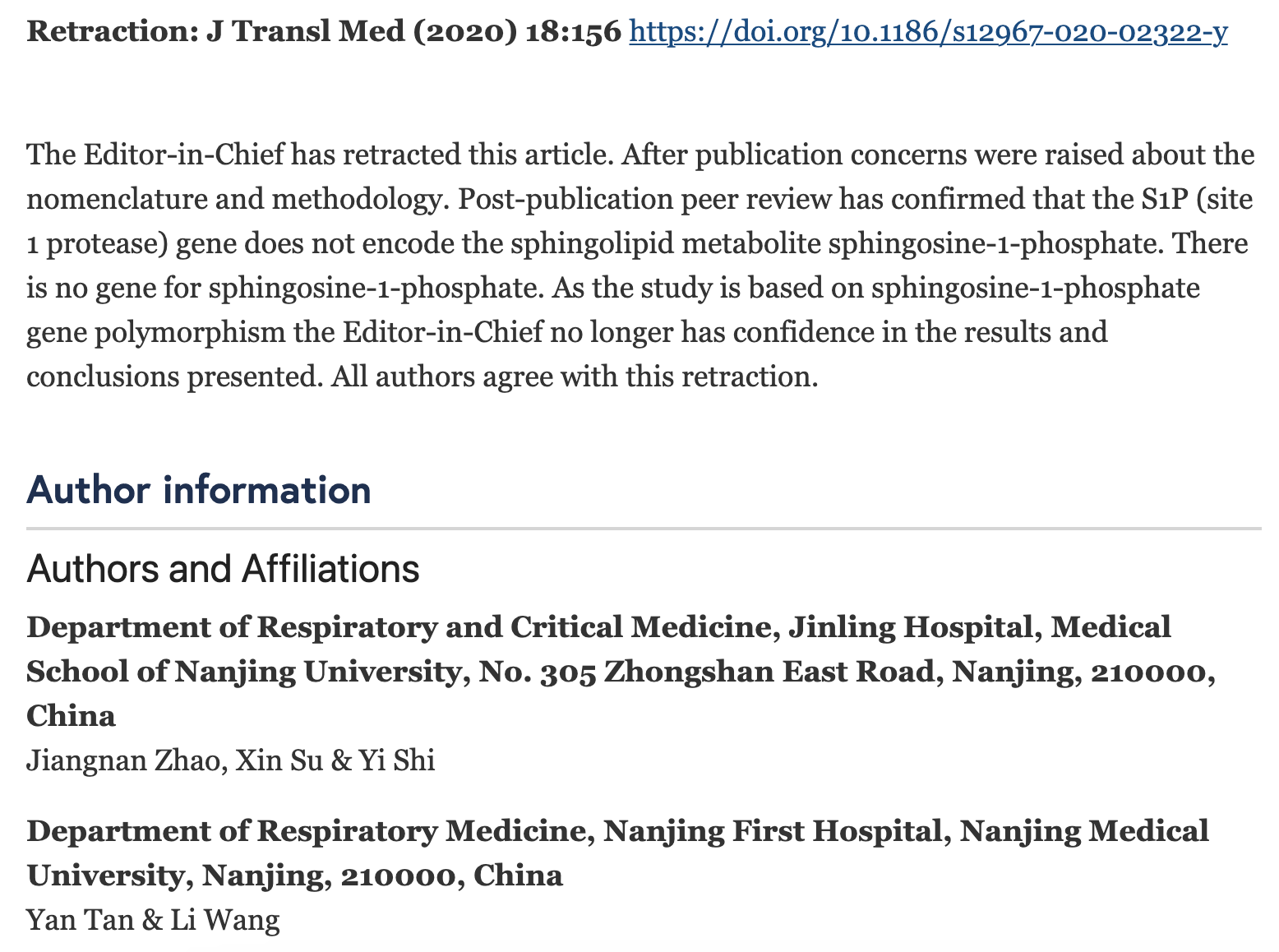
The retraction notes stated that the sphingosine-1-phosphate (S1P) gene does not exist.
The editor-in-chief of the Journal of Translational Medicine has retracted the article, according to the retraction statement. Concerns were raised about the nomenclature and methodology of the paper in question after it was published. Post-publication peer review has confirmed that the S1P (site 1 protease) gene does not encode the sphingolipid metabolite sphingosine-1-phosphate. The sphingosine-1-phosphate gene is absent. However, the research of the paper involved is based on the polymorphism of the sphingosine-1-phosphate gene, so the editor-in-chief no longer has confidence in the results and conclusions provided by the paper. All named authors of the paper in question agree to the retraction.
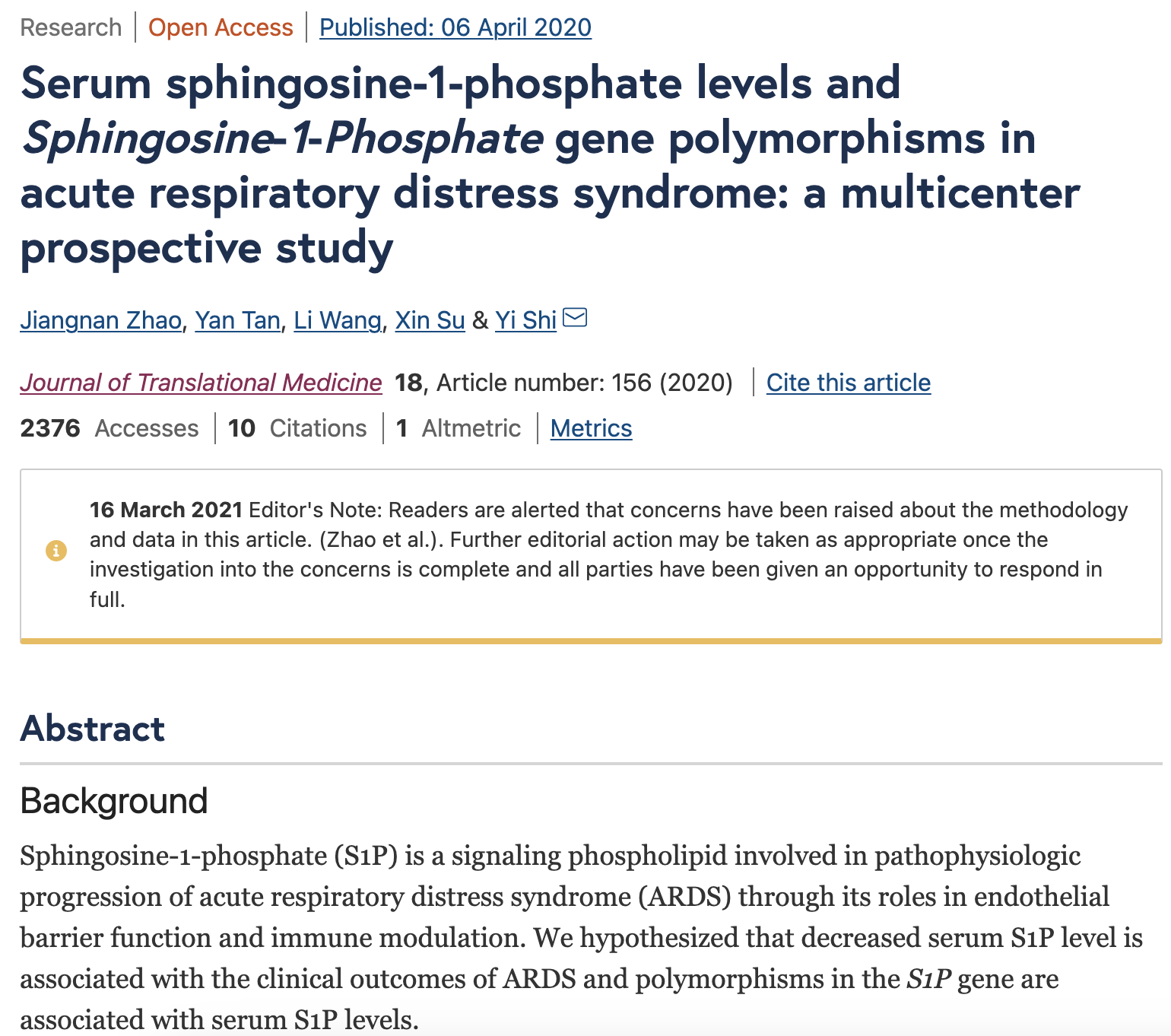
According to the paper, related research has been supported by the National Natural Science Foundation of China under No. 81470206 and the National Natural Science Foundation of China under No. 81670073.
The search results of the relevant websites of Metz Medical, a comprehensive Internet platform for doctors, and Qingta, a data technology company, show that the project funded by the National Natural Science Foundation of China with the "No. Role", the project leader is Shi Yi, the funding amount is 750,000 yuan, and the project was established in 2014.
The "No. 81670073" project funded by the National Natural Science Foundation of China is "Research on the mechanism of HuR and miR-890 competing to regulate the expression of the key initiation factor HMGB1 of ARDS". The project leader is Su Xin, and the funding amount is 530,000 yuan. .
